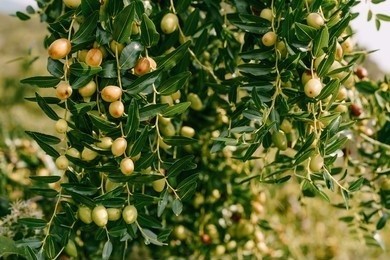Rhamnaceae Plants Tissue Culture
The plants of the Rhamnaceae have about 58 genera and about 900 species and are distributed throughout the world in temperate and tropical regions, with the greatest distribution in tropical and subtropical regions. Most of the plants in this family are trees, but there are also shrubs and vines, and occasional herbs. Rhamnaceae plants contain many economic species that are used as nectar plants, beverages, spices, herbs, dyes, for extracting tannins, or as rootstocks for grafting.

Propagation by division is the traditional method of propagation of Rhamnaceae plants, usually for large adult trees, and artificial root breaking measures are taken, which is not only harmful to the mother tree but also may cause a mix of species. Grafting is simple and easy, with a high survival rate, but the amount of branching is low and crown formation is slow. The propagation of shoot cuttings consumes a large number of branches and must be semi-woody branches sprouting in the same year, making it difficult to take the material. Traditional propagation methods seriously limit the speed of propagation of good Rhamnaceae plants and are prone to quality degradation and virus or virus-like infections.
Tissue culture service
In response to the above situation, Lifeasible provides Rhamnaceae plant tissue culture technology services, using aseptic technology to culture isolated parts (explants) of Rhamnaceae plants in suitable media and grow them into high-quality monoculture seedlings, with short cycle time, high efficiency, and the ability to produce de-virulent seedlings.
- Ziziphus jujube Mill.
- Ziziphusjujuba Mill. Subsp. Spinosa (Bunge) J.Y. Peng
- Ziziphusjujuba Mill. cv. Dongzao
- Ziziphus mauritiana
- Ziziphus jujuba Mill. Lajiaozao
- Ziziphus jujuba cv. Xilv
Applications
- Polyploid breeding (generally characterized by vigorous growth, large fruits with few or no kernels, high yield, adaptability, and resistance, etc., and the ability to use asexual reproduction to determine their good traits, so that they remain stable and do not separate)
- Artificial seeds (with the advantage of being factory ready for large-scale preparation, storage, and rapid dissemination)
- Genetic transformation research (efficient tissue culture system is the basis for cell engineering and genetic engineering)
You want to sign a confidentiality agreement.
You have a specific plant species for your experimental needs.
You have a reliable and relevant cooperation project to discuss.
You are very interested in our project or have any questions.
You need an updated and detailed quotation.
For research or industrial use.



